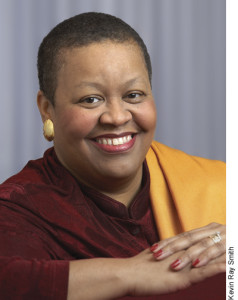The Power of Personal Stories
Speakers include personal stories in their presentations to connect with their audience. Why? Because we all love to hear stories.
Stories are a time-honored way to communicate a great deal of information in a relatively short amount of time. When shared with others, our personal stories can offer a lifeline or a bridge, a beacon or a candle in someone else’s life. You never know when something will kindle a spark in others that ignites them to share THEIR stories.
A few years ago, I delivered a keynote for an international leadership conference. The organizers invited me to speak about authentic leadership. They knew of my work in equipping and coaching leaders as well as my work as a storyteller.
I was one of the few speakers from the United States and was sensitive to an anti-American sentiment among some of the conference participants. As I glanced at my presentation, I contemplated how I might serve as an ambassador not only for authentic leadership but also as an instrument for reconciliation.
Reflecting on Archbishop Desmond Tutu’s invitational words—“God is waiting on us. . . . He needs our help”—I asked myself: During this particular conference, how might God need MY help?
After I spoke, I knew the answer.
Though I had prepared notes, I decided in the moment not to use them. And instead of standing behind the podium, which was a considerable distance from the audience, I walked downstage near the edge of the platform.
For almost an hour, I spoke extemporaneously from my heart, telling stories and sharing examples from my life to illustrate key points.
Rather than talking about authentic leadership, I modeled it. I showed my true self, using my voice and presence to illuminate the most essential aspects of leadership, aspects that in Western culture are too often ignored. I represented a mirror in which participants could see a glimpse of their own reflected light, their own possibility.
As I spoke, I saw that many people in the audience were on the edge of their seat. The room was charged with enthusiasm. I mean enthusiasm as it’s connected to the Greek word “entheos,” which means inspired by the gods.
The audience was excited and expectant for what THEY could become, for their own possibilities now that they were armed with this new, so easily received wisdom.
When I concluded my talk, I received a standing ovation. I mention this only to emphasize that the audience received my keynote as a demonstration of authentic leadership, of daring to wear your soul on the outside. By speaking from my heart without my notes, I walked my talk, modeling a legacy of authenticity and infusing its worth into the lives of the men and women in the audience.
I believe that ovations are not only for the person with the microphone, they’re also a powerful affirmation for those offering the ovation. In this case, it was the audience’s recognition of what storyteller and author Clarissa Pinkola Estes refers to as “standing up and showing your soul.”
This is the exquisite power of story.
For speakers, personal stories demonstrate your authenticity, they demonstrate your desire to connect. They demonstrate that you aren’t afraid of being real, of standing up and showing your soul. They also show your humanity, with fierceness and frailties just like everyone else.
A master storyteller, John Maxwell understands the power of connecting with his audience.
Include personal stories in your seminars and presentations, and you, too, will connect more powerfully with your audience.
About the Author
 Gloria Burgess is a Featured Writer for the John Maxwell Team Blog.
Gloria Burgess is a Featured Writer for the John Maxwell Team Blog.
She is an inspiring, dynamic speaker who brings a wealth of experience to the platform.
A seasoned speaker and business executive, her powerful keynotes and seminars connect with audiences because she brings real-world, in-the-seat experience to corporate events, conferences, and meetings. Gloria speaks at events around the world.
Contact Gloria at http://www.johncmaxwellgroup.com/gloriaburgess/
